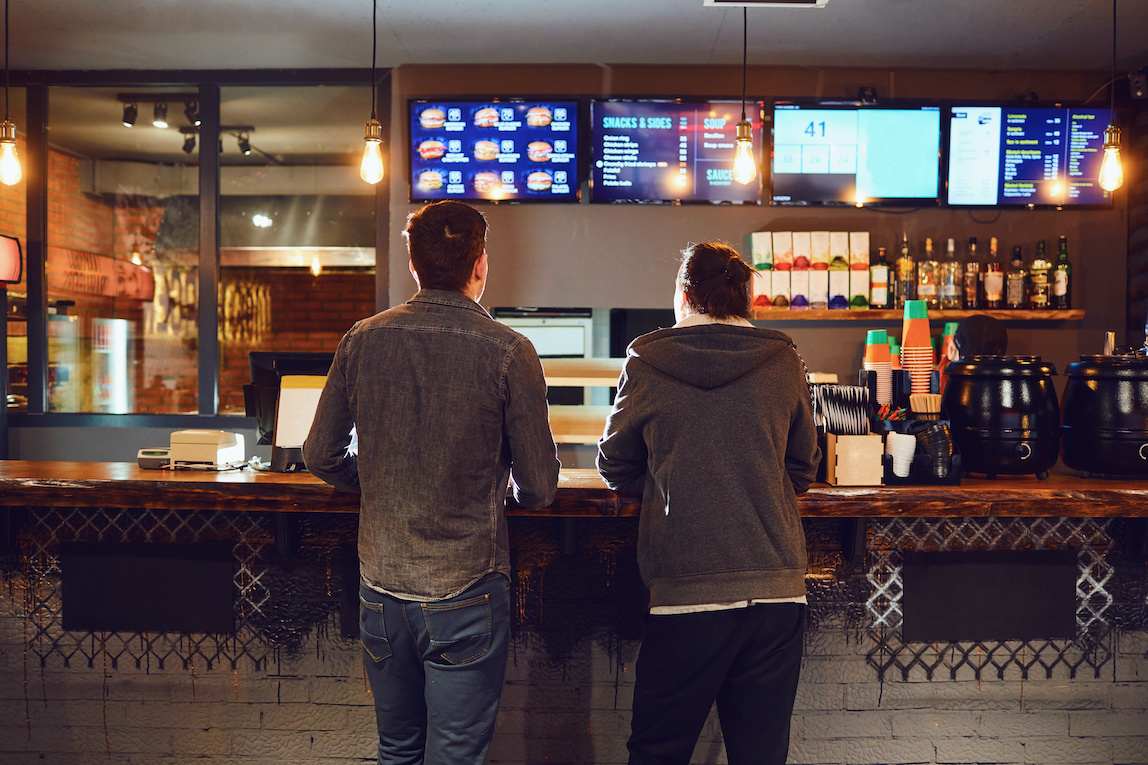Call Sales: +1 (833) 437-3835
Call Sales: +1 (833) 437-3835
Revel | January 21, 2017 |

Do we sacrifice personal touch and genuine hospitality in our effort to optimize efficiencies using tech in the restaurant industry?
Or can we create a synergy between restaurant technology and old-fashioned service for the ultimate guest experience?
Perhaps the question at the core of both of the previous questions is, why is technology important in restaurants? When implemented well, technology has the potential to enhance the dining experience, streamline operations, and offer new avenues for revenue.
Many restaurants are rapidly adapting to new technologies. They are creating unique ecosystems out of a variety of platforms and applications to produce a high-quality guest experience, forming an interconnected restaurant tech ecosystem. Often, these tools also help maintain margins in the front-of-house, the kitchen, and back office administration.
The restaurant front-of-house utilizes a variety of technologies to create a seamless service and top-notch dining experience. From reservations to coursing to payments, there are several emerging technologies transforming the restaurant guest experience.
Online reservations are key to driving business to a restaurant. They can be an asset in determining table turn times. Online food ordering streamlines the seating process and ensures that tables don’t sit empty.
Certain platforms, such as OpenTable, can collect guest information to help improve customer service. OpenTable and other apps, such as Resy, also allow restaurant patrons to make reservations at curated lists of restaurants from their mobile devices.
Tabletop restaurant technology , such as tablet-based mobile order takers, also has more of a presence in full-service restaurants. A Cornell University School of Hotel Administration study on tabletop technology shows that “over 70% of the customers who used a tabletop food ordering system reported positive affect toward the device, with approximately 79% of customers reporting that the device improved their experience, citing convenience, ease of use, and credit card security as some benefits of using the technology. Approximately 80% of the customers who used the device reported that they would return to the restaurant because of the positive effect.”
iPad POS Systems have become increasingly popular due to cloud hosting. Additionally, they are far less cumbersome than the legacy alternatives. They offer far more features, better security, and allow for faster transaction times, as do mobile payments.
Mobile payments are becoming increasingly popular among diners. After all, we’re used to using mobile payments for restaurant delivery so why not use them at the restaurant? They save time in paying the bill and increase customer engagement, refuting the idea that high-tech can distract from high-touch. One third of diners indicated that they would use mobile payments for the convenience factor.
Technologies such as the Apple Watch are even being integrated into front-of-house activities for an elevated level of service. Danny Meyer’s Union Square Hospitality Group plans to have managers wear the Apple Watches so they can receive real-time alerts on aspects of service from table turns, to VIPs walking in, to when a menu item needs to be 86’d. This is a unique application of restaurant technology to make the guest experience both more efficient and more personal.
Online ordering is another area of restaurant technology that is important in restaurant revenue management, plus it is great for a restaurant’s marketing and internet presence.
It allows restaurants to make incremental revenue during slower service times and by serving more diners than can be seated in the restaurant. It has the added benefit of being relatively easy to implement operationally.
When it comes to technology in restaurant industry environments, delivery is a critical area of focus. The market for online ordering and delivery is highly saturated with platforms including UberEATS, DoorDash, Postmates, Grubhub, and more. Restaurants that leverage online ordering can sometimes see revenue increase by 30%.
FAQ
How has technology helped the restaurant industry?
By offering solutions like restaurant management software and different systems to enhance and streamline the guest experience, technology has revolutionized the way restaurants operate, ensuring efficiency and customer satisfaction.
How does technology affect food service?
Technology (such as a restaurant management system) streamlines processes, offers convenience to customers, and provides valuable data insights for restaurant owners to improve service.
What is the new technology in the food industry?
2023 technology includes the integration of AI, machine learning, and data analytics to personalize the dining experience and optimize restaurant operations is the biggest emerging technology in the food industry.
How has technology affected the restaurant industry?
Technology has revolutionized the restaurant industry by streamlining operations, enhancing the dining experience, and offering new avenues for revenue through online ordering and delivery services. It has provided restaurants with valuable data insights, improved customer engagement, and enabled more efficient management through software and digital platforms.